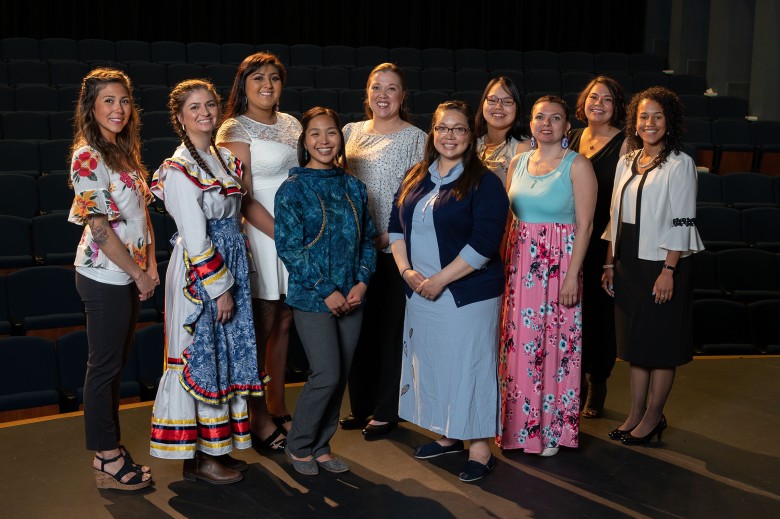Dental Health Aide Education Program celebrates largest graduating class
July 3, 2019
On June 14, family and friends gathered in Anchorage to celebrate ten new Dental Health Aide Therapists (DHAT), the largest graduating class from the Alaska Dental Therapy Education Program (ADTEP) to date.
“As we begin the celebration of 15 years of DHAT practice in Alaska, it is fitting that this is our largest class, with 10 graduates,” said Dr. Mary Williard, who helped create ADTEP. “The success of our DHAT education program has been documented, showing that the work of Dental Health Aide Therapists helps to significantly decrease the rate of severe dental disease while increasing the amount of preventive services available for our Alaska Native people, often within their own communities.”
The program in Alaska is now being utilized as a dental care solution for Tribes in other states, with a growing number of students enrolling from out of state.
“It is also exciting to note that seven of this year’s graduates are from Tribal communities outside of Alaska. These graduates will go on to help erase the oral health inequities suffered by too many Alaska Native and American Indian people around our county and beyond,” said Dr. Williard.
More than 40,000 Alaskan residents across the state rely on ADTEP graduates to provide oral health care without traveling long distances from their home communities. Without DHATs, the geographic challenges can result in people of all ages not receiving routine services such as cleanings or X-rays.
“This program brings with it the knowledge and abilities that will change the care our communities receive,” said Ruby Okitkun, of Kotlik in the Yukon-Kuskokwim region, who was one of the three Alaskan graduates. “As the tools ADTEP provides are imparted to an individual, the roots in the community grow deeper. The combination of modern dentistry and traditional values is impactful.”
At the Yukon-Kuskokwim Health Corporation, students implemented a community-based sealant program in 2015. This program has decreased the number of decayed, missing and filled permanent teeth in kindergarten through seventh grade students by more than 50 percent.
“We are so proud of what you have achieved,” said Roald Helgesen, ANTHC CEO and Administrator. “Alaska is thrilled to share program knowledge and training with Washington, Idaho, Oregon and beyond, so that our people can have parity and access to good oral health services. Ten dental health aide therapists join more than 51 others across Alaska, and now we can say, across the United States.”
In addition to providing oral health care knowledge, the DHAT program includes educating graduates to return to their communities as “change agents” according to Dr. Williard.
For Okitkun, the development of excellent communication and people skills is a surprising added benefit of the education program, one that helped her come out of what she calls, her “quiet shell.”
“Prior to my first day of class, I expected to learn very well how to care for teeth and how to provide services for patients coming in to receive dental treatment. Little did I know that we would be learning so much more. In addition to preforming dental exams, cleanings, fillings and simple extractions, I learned to be an important piece to achieving better health; a provider for my community, from my community.”
“You are the healers. You are the role models,” concluded Helgesen. “You are the providers offering preventative services to children in underserved communities. Thank you for all you have accomplished so far and all you will do in the future, to bring the best oral health care to our people, closer to home.”
All of the graduates are equipped to meet the basic and preventative oral health care needs of Alaska Native and American Indian people living in rural communities in Alaska and the Lower 48.
The Consortium and Iḷisaġvik College collaborate in facilitating ADTEP, which is one of three health aide education programs offered through ANTHC. In addition to ADTEP, the Consortium has trained behavioral health aides and community health aides for many years. Each program offers Alaska Native centered learning, dedicated to expanding culturally appropriate health care at the village level.
Learn more about the Alaska Dental Health Aide Education Program.
